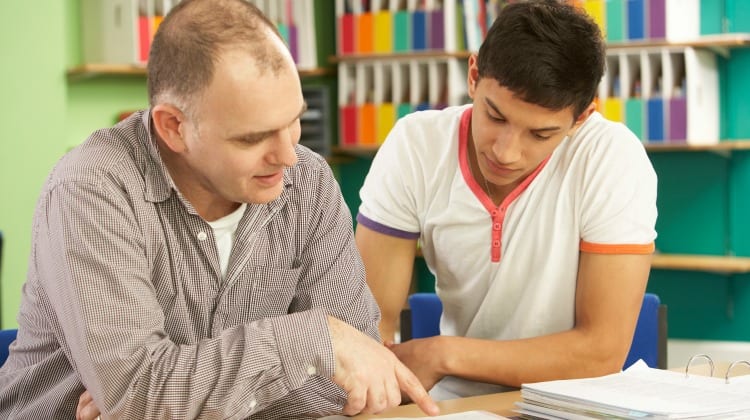Having a child diagnosed with a conduct disorder, ADHD, bipolar disorder or other serious psychological issue is one of the most devastating events in a parent’s life. What happens if your child is clinically diagnosed with a mental illness? What is the best thing a parent can do for their troubled teen? Programs for troubled youth are readily available but with so many options, how does a parent know they are choosing the right kind of therapeutic programs that address their child’s unique problems? Zion Educational Systems hopes this guide to troubled teens programs can help parents decide what is in the best interest of their child’s mental, physical and emotional needs.
Residential Treatment Centers for Teens
Troubled youths who have not responded to intensive counseling, disciplinary measures or the consequences of repeated encounters with law enforcement are the best candidates for residential treatment centers. The average length of stay in a residential program for most teens is six months but some teens may require a year or more to resolve deep-seated psychological issues. While residing 24/7 at a residential treatment center, teens participate in daily individual and group counseling, academic studies and holistic projects such as art, journal writing and outdoor activities. Sometimes referred to as boarding schools, residential treatment centers offer a highly structured environment in which teens learn how to manage poor impulse control, change negative thought patterns and develop a different perspective on their lives and reality.
Advantages of residential treatment centers for troubled teens include:
- Provides a safe, therapeutic environment that prevents teens from being negatively influenced by harmful peers
- 24/7 access to experienced therapists, psychologists and psychiatrists who are trained to quickly recognize and address unresolved emotional problems in troubled youth
- Teens can develop positive relationships with other kids who have similar problems. Being able to share thoughts and feelings with peers who understand “where they are coming from” is a vital part of the healing process
- Parents can speak to residential treatment center faculty on a daily basis and are encouraged to participate in family therapy sessions with their teen
To learn more about the dynamics of a residential treatment center for your teen, please contact Zion Educational Systems today.
Wilderness Therapy Programs for Troubled Youth
Similar to a residential treatment program in that teens live away from their home for several months, wilderness therapy is rapidly becoming one of the most effective and popular methods of addressing behavioral problems in adolescents. Wilderness therapy involves a group of teens and professional counselors living together at a base camp where everyone is expected to share responsibilities, such as making a campfire, cleaning utensils, cooking food and building shelters. Studies investigating the efficacy of wilderness therapy have found that teenagers respond more productively to the consequences of their negative behaviors when confronted with survival struggles. For example, if tasks like gathering firewood or catching fish for supper is assigned to a teen and the teen refuses to do these tasks, they will suffer the consequences of causing everyone–including themselves–to be cold, hungry and in the dark.
Overall, wilderness therapy programs have been shown to help significantly reduce anxiety, depression, impulsivity and symptoms of conduct disorders. In addition, teens who successfully complete a wilderness therapy program go on to improve both academically and socially. In many cases, many wilderness therapy graduates demonstrate near normal to normal psychological and/or behavioral functioning in six month follow-up reports documented by their psychologists.
Boarding Schools for Troubled Teens
While residential treatment centers and wilderness therapy programs provide the most benefit for teens with conduct disorders, therapeutic boarding schools tend to address academic and emotional issues seen in adolescents with ADHD, Asperger’s and certain developmental learning disorders. Parents of teens who have not been involved with law enforcement, exhibited aggressive behavior or shown severe symptoms of a conduct disorder might consider researching therapeutic programs provided by boarding schools.
What are Court-ordered Troubled Youth Programs?
Teens who repeatedly break the law and find themselves reappearing before juvenile judges may be mandated to attend court-ordered programs for troubled youth. These “programs” are not residential treatment centers, boarding schools or wilderness therapy programs. Instead, they are most likely privately owned boot camps resembling adult prisons or military boot camps. Decades of research studies have shown that boot camps are no place for teens with serious mental health problems. People who run boot camps typically have no educational background or clinical experience regarding abnormal adolescent behavior. In fact, many boot camps have been shut down over the past 20 years due to their abusive methods of “treating” troubled teens.
Programs for Troubled Girls vs Programs for Troubled Boys
Adolescent girls and boys may be diagnosed with the same behavioral and psychological issues but the way a teen boy or teen girl “acts out” their problems may require highly individualized treatment programs. An example of special programs for troubled girls may include psychotherapy and medical interventions for teen girls with anorexia nervosa or bulimia nervosa. Alternately, special programs for troubled boys may include counseling for video game addictions. However, both types of programs address behaviors common to troubled teens, such as refusing to go to school, defying parents, engaging in illegal activity and poor impulse control.
Outpatient Treatment Programs for Teens
Parents of teens who are just starting to present signs of behavioral problems may consider an outpatient treatment program that allows the teen to continue living at home. Outpatient programs provide counseling and therapy during the day, after school or on weekends if applicable. Adolescents benefiting the most from OTPs are those who have been diagnosed with depression, social anxiety, obsessive-compulsive disorder, borderline personality disorder, bipolar disorder and autism spectrum disorders. Teens with oppositional defiant disorder or conduct disorder respond better to living in the structured environment of a residential treatment center or wilderness therapy program.
Zion Educational Systems has helped many parents find the right kind of treatment program for their teen. We understand how difficult it can be to realize your child needs more help than you can give them. Please call today to learn more about the different programs for troubled youth.





